A new dog is an exciting time, but also daunting at times, especially if you’re not very experienced in training your new pal. Fear not, aspiring pet parents! Below are our picks for 5 easy-to-train dog breeds for beginners. These dogs are the ideal choice for people who aren’t experienced in the dog ownership game as they possess a combination of intelligence, pleasing personality and pragmatism that will make training a treat instead of a chore.
1. The Labrador Retriever: America’s Number One For A Reason.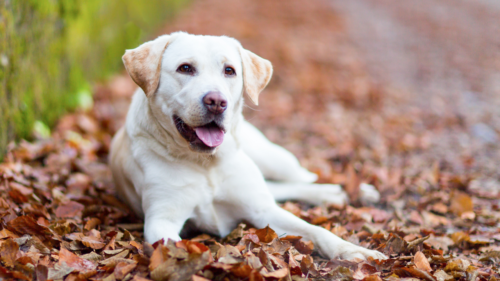
As a training dog and just general personable dog, there is no dog better than the Labrador Retriever. For decades now, it has been on the American Kennel Club’s list of most popular dogs, and not without reason.
Why Labs Excel in Training:
- Intelligence: Labs are fast learners, they learn commands and tricks quickly.
- Do You a Favor: The need to please their humans makes positive reinforcement training a real winner.
- Food incentive: The vast majority of Labs are very foodie so treats are an excellent practice tool.
- Psyche of the Patient: The Labs generally have a sane disposition, thus training is efficient.
Training Tips for Labs:
- Begin Early: Get socialized and some basic obedience training done as soon as you get your Lab puppy home.
- Positive Reinforcement: Reward-training really is a winner for this breed.
- Include Play: Labs are game-lovers, so keep trainings entertaining by adding games and toys.
- Be Consistent: Set no-frills rules and don’t muddle them.
Potential Challenges:
Labs are relatively straightforward to train, but in their youth can be easily overexcited. This could cause jumping on people or tugging at the leash. Training and exercise regularly will control these tendencies.
2. The Poodle: The Intelligent Charmer
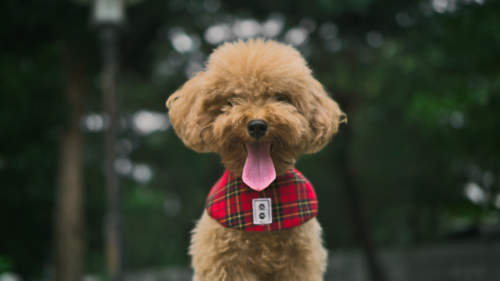
Don’t get fooled by the pompous haircuts – Poodles are much more than cute. These dogs are also known to be intelligent and playful which is why they are great options for first time dog owners.
Why Poodles Are Training Stars:
- High Level Of Intelligence: Poodles are considered as one of the smartest dogs around.
- Comfort: Available in 3 sizes (Standard, Miniature, Toy), there’s a Poodle for every type of home.
- Passionate to Learn: Poodles like to be mentally challenged and try new things.
- Sporty: They are great for obedience and trick training because of their aplomb.
Training Tips for Poodles:
- Keep It Different: Poodles tire easily, so mix things up in training.
- Bring Mental Toys: Puzzle toys and tricky tricks can fill their mental void.
- Add Agility: They’re athletic so they’re great for agility exercises.
- Be Soft: Poodles can be tender, so talk softly and reward with positive reinforcement.
Potential Challenges:
It is just the way Poodles can out-think their owners. They can also get into bad habits if they are not stimulated in the mind and body enought. It takes daily training and exercise to keep a Poodle sane.
3. The Golden Retriever: The Conceivable Goalsetter.
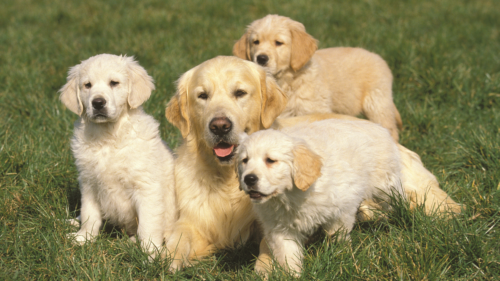
Golden Retrievers are like their Labrador siblings in being sociable and easy to train. The golden-coat, lovely dogs are fun to train and be with.
Golden Qualities for Training:
- They are soft minded: They are good listeners due to their tame nature.
- Human-Centred: Goldens are all about their humans, and they are careful during training.
- Bright and eager: They learn very fast and they are always learning.
- Easy to live with and train: Goldens are adaptable to all kinds of homes and training regimens.
Training Tips for Goldens:
- Make a Play On : Goldens are positive-feedback machines and love their owners.
- Add Water: Goldens love water so giving water play as a reward can work well.
- Meet New People & Animals: Get your Golden exposed to other people, animals and events early.
- Give them Time: Goldens are smart, but they are also funny. Patience and consistency are key.
Potential Challenges:
There are goldens who are able to get too excited, jumping or mouthing. And they chew too, especially as puppies. These can be controlled with the right chew toys and regular training.
4. The Papillon: The Butterfly-Eared Brainiac
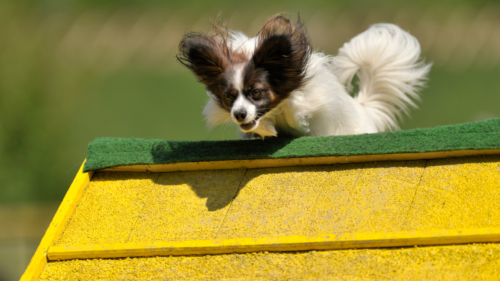
Don’t get fooled by their small stature – Papillons are big on brains and character. The beautiful dogs, which they called due to their butterfly ears, are actually a simple treat to train, for a small toy dog.
Papillon Training Perks:
- High Brains: The smartest of the toy breeds, Papillons are sometimes said to be.
- Engaging and Fun: They’re very animated and make training sessions interesting and interesting.
- Flexible: They can be living in any apartment or even a big house.
- Need to please: Papillons have a very close relationship with their owners and they want to please them.
Training Tips for Papillons:
- Keep Less Than Two Sessions: They’re also small and can get tired more quickly than other breeds.
- Apply Positive Reinforcement: Praise and treats are good for papillons.
- Add Agility: Papillons aren’t too big to be great agility dogs.
- Socialize Young: Introduce your Papillon to other people, animals and events before he or she gets shy.
Potential Challenges:
And don’t be afraid to have “small dog syndrome” with Papillon`s who don’t receive proper training. Sometimes they will even bark. These problems can be prevented with regular training and early socialisation.
5. The Collie: The Loyal Lassie
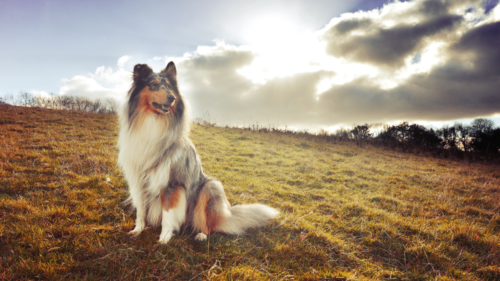
Legendary due to the television series “Lassie,” Collies are not all roses and bows. They are smart, loyal dogs that are great to train and wonderful family dogs.
Collie Training Advantages:
- High Intelligence: Collies are quick learners and great with obedience lessons.
- Careful and Patient: They are suitable for children.
- Loyal to Family: Collies are close to their families and driven to please them.
- Herding Instincts: The herding instincts can be used for fun training exercises.
Training Tips for Collies:
- Do Positive Reinforcement: Collies are sensitive and they like positive reinforcement most.
- Encourage Brain Exercises: Puzzle toys and complicated tasks can entertain their clever brains.
- Add Herding Activities: Activities that involve their herding abilities can be a lot of fun and enjoyable.
- Meet People and Animals Early: Get your Collie used to new people, animals and situations before he gets shy or protective.
Potential Challenges:
Collies will bark, and if they’re not properly trained, they’ll try to bully kids or other animals. They need grooming regularly too, especially the rough-furred types. With regular training and early socialization these impulses can be controlled.
The Most Important Training Tips for All Dogs and Cats.
There are general training advice for you and your new pet no matter what breed you get:
- Get Started Right: Get your puppy started with training and socialization the moment you receive him home.
- Stay consistent: Use the same commands and rules throughout so your dog is not confused.
- Short Sessions: Dogs (especially puppies) are very quick-witted. You’ll do more small breaks during the day than you will in a single session.
- Use Positive Reinforcement: Positive reinforcement is a lot more successful and bonding with your dog.
- Socialize, Socialize, Socialize: Introduce your dog to new people, animals and situations so they become healthy adult citizens.
- Patient: Every dog gets learning differently. Be patient if things are slow.
- Make It Fun: Training should be a fun activity for you and your dog.
- Get Professional Support: Unless you have a puppy traiiner that is really doing a good job at it then I recommend you take a puppy training course or a professional dog trainer.
The Importance of Breed Research
These 5 dogs are trained but there is a big difference because every dog is a unique person. Between breeds there can be temperamental and training variance. There are other factors, such as early socialization, regular training, and even the temperament of the individual dog, which all impact the trainability of a dog. Before you buy any dog, make sure you do your research on the breed before you buy it. Consider factors like:
- Exercise needs.
- Grooming requirements.
- Potential health issues.
- Reflex with children and other pets.
- Size and space requirements.
If you match your lifestyle and needs with the right breed, you’ll be on your way to having a fun, healthy, and successful dog. Don’t forget, owning a dog is a commitment, that takes time, patience, and love. These types of dogs are easier to train but all dogs need regular training, socialization and care throughout their lives. Follow the protocol and give a whole lot of love and you and your new fur baby will have a great, furry life together, with tail wags, nose licks and heartwarming stories.




Leave a Comment